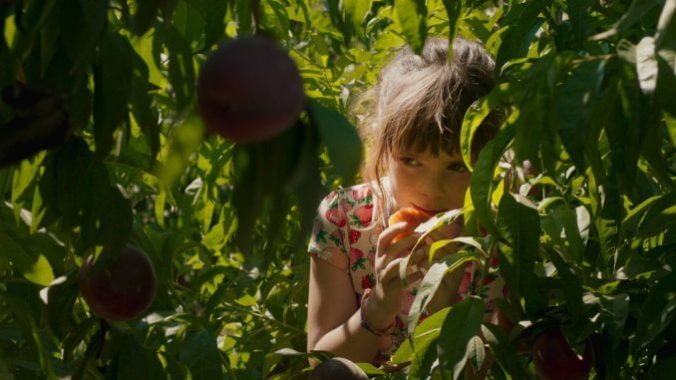Alcarràs and Cinema’s War of Technological Progress

As I tend to watch a good number of new films each year, from as many different countries as I can, I invariably notice themes running through several of them that speak to nagging issues that define the year. I tilted my head as I watched Carla Simón’s Alcarràs when I realized its central brewing conflict—technological encroachment on nature and the disruption of people’s ways of life—was one I had seen form the basis of at least five other 2022 films. I was reminded of Salomé Jashi’s Taming the Garden, Rodrigo Sorogoyen’s The Beasts, Tony Stone’s Ted K, James Cameron’s Avatar: The Way of Water and Shaunak Sen’s All that Breathes, among others. Alcarràs was one of the last films I saw in 2022, at my local theater as part of a European film roundup they do at year’s end. It seemed like a perfect bookend to a string of movies that spoke deeply and with a warning about mankind’s place in the impending cataclysm between nature and technology.
Alcarràs takes place in Catalonia, a region with a history of movements aimed at sovereignty, and that recently held a ceremonial declaration of independence from Spain. Embodying the independent spirit of his region, Alcarràs’s central patriarch Quimet Solé (Jordi Pujol Dolcet) just wants to live and work on his peach farm with his family and be left alone. Unfortunately, his father Rogelio (Josep Abad), who inherited the farm from a rich friend after the Spanish Civil War, never actually signed any legal documents; now the land is being seized by the descendants of the original owners. To add to the problems, they have come into partnership with an energy company that aims to utilize large swaths of the land for a solar farm.
The solar panels—like the wind turbines in The Beasts, which takes place in Galicia, another autonomous region of Spain—are framed as invasive behemoths, dwarfing the characters in the film and covering the land in their shadows. Technological advancement is an inevitable and impending reality in these films, and its slow encroachment is captured by the camera through a gradual taking over of the frame. Quimet’s frustration throughout the film, effectively portrayed in Dolcet’s weathered and pouty face, sees his slow realization of his farm’s impending doom begin to negatively affect his relationships with his family. His controlling nature attempts to preserve their traditional way of life. Every moment threatens to burst into violence.
A litany of cultural changes swirl around Quimet and his family, and while most of them succumb to at least some type of embrace of the technological age, Quimet is steadfastly defiant. His daughter Mariona (Xènia Roset) films dance videos with her friends; his sister Gloria (Berta Pipó) visits from the city, and lives a progressive and socialite lifestyle; his brother Cisco (Carles Cabós) is secretly working with the energy company behind his back. Slowly, the seams that tie his family together loosen, and Quimet faces the crisis confronting many in our rapidly advancing world: How tight a grip can you hold onto tradition before everything breaks?
-

-

-

-

-

-

-

-

-

-

-

-

-

-

-

-

-

-

-

-

-

-

-

-

-

-

-

-

-

-

-

-

-

-

-

-

-

-

-

-








































